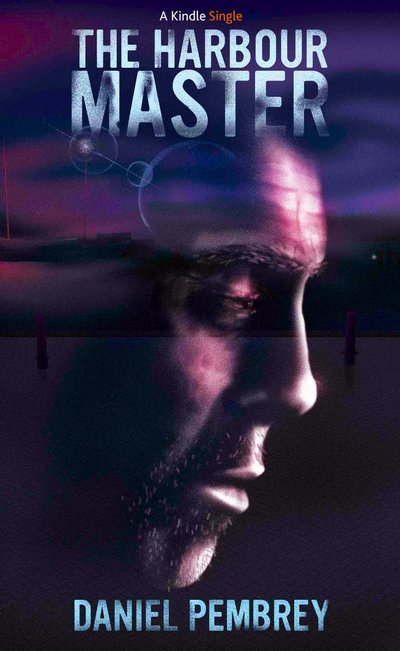|
|
 Fall headfirst into July’s hottest stories—danger, desire, and happily-ever-afters await. |

Purchase
Self Published Thriller, Suspense Excerpt of The Harbour Master by Daniel PembreyTHE DISCOVERY There’s a spot down by the harbour, with bicycle seats mounted on bollards like fishing perches, where you can’t help but feel alert and vigilant. Even, or especially, at six in the morning. But maybe I’m biased. My forebears were fishermen and port workers, longshoremen and mariners. In the March morning light, the water looked glassy; the flat mist was cool and clammy around my eyes. It called to mind generations of ancestors setting out at dawn and sailing off into the North Sea, unsure of what destiny lay before them. We Dutch remain at heart a seafaring people: a small but proud collective who once traded with the farthest reaches of the globe – as attested by the pale, stone maritime museum across the harbour, and the eighteenth- century vessel moored there, her masts blurring into the fog. These monuments to the “golden age” appeared faint and ghostly, like some dim recess of my memory. I let my finished cigarette drop to the ground; it fizzled out in a puddle as I exhaled the last puff of smoke. I thought about how it might be a fine time to quit, approaching early retirement as I was. There was no one around except a lone dog walker and a vagrant talking to himself, louder than easy contemplation allowed. It’s hard to find silence in this city: the movement of vehicles on the ring road, the rumble and creak of trains entering and leaving Centraal station, a faint foghorn out in the sea channel. After thirty years as a cop on this beat, I can confirm that peace only comes from within. I eyed my watch: still plenty of time before I was due to meet my wife. We tried to meet for breakfast on a regular basis now that Nadia had left for university and the nest had become empty again. Perhaps it was good for me – a routine for retirement? Though I was planning on telling Pernilla about the trip I’d discussed with Johann, my old army friend and fellow BMW motorbike owner. My gaze remained on the dog walker, who had taken an alert stance similar to my own, his hands buried in the pockets of his charcoal-grey raincoat. So much of police work comes down to making quick and accurate character assessments. Maybe I needed to get a dog, I thought – a retired police one, perhaps, so we could be co-retirees together – when suddenly the man’s hands flew up out of his pockets and waved above his head. “Hey,” he yelled. His dog’s bark was like a gunshot across the harbour. “Hey!” I was off my perch and running towards them. Before I’d even got there, I caught sight of a fleshy greyness breaking the water surface. My sinking stomach and the buzzing in my ears confirmed what my brain already knew: it was a body, with a floating corona of hair. I reached for my phone. “I’ve got it, Henk,” Bergvelt said, resting his hand on my shoulder. The hand was more controlling than consoling. Sebastian Bergvelt was barely more than half my age. His sandy hair was short on the back and sides but floppy on top; he wore a designer raincoat, and shiny black shoes wholly unsuited to the harbourside. He was one of Jan Six’s boys – on the up, politically. But this wasn’t the time to dwell on the ascent of Jan Six (“Six-Shooter”, as he was known) to the top of the Amsterdam police force, or Bergvelt’s rise through the ranks at the IJ Tunnel 3 station where he and I worked. The reality was simple: Bergvelt had tactical command of the situation now. I’d arranged for a hoist to lift the corpse out of the water. Its engine was revving to power the hydraulics, sending a cloud of smoke between Bergvelt and me. The body was raised, cradled in a black mesh harness, water dripping off it. It was like a funeral in reverse – a marine exhumation, you might say. The man with the dog had stayed, his head now bowed respectfully. The dog, a cocker spaniel, whimpered softly. Bergvelt asked them to move along, explaining that this was a police matter. I had my phone out, in order to film the removal of the body. The woman’s thighs and arms had swollen to Frankenstein-like proportions, her dark trousers and top so stretched that they’d ripped at the seams. Her fingers were like little sausages; I couldn’t help but look away. As I did so, I caught sight of a crowd gathering on Prins Hendrikkade. Mopeds buzzed to a halt, idling; cyclists stopped abruptly, pointing. Words were being shouted; I didn’t catch what. Something prompted me to point the phone in their direction. “Can I borrow that?” Bergvelt gestured at my mobile, surprising me. “There’s something wrong with mine.” He was looking at the onlookers, too. “Where’s Larsson? This is turning into a circus.” Kurt Larsson was the medical examiner, a Swede known for his indestructible joviality on the job. Bergvelt was fumbling with my phone. “Here,” I said, reaching for it. “Larsson’s in my address book …” But Bergvelt had already found the number. The hoist lowered the corpse gently onto the dull paving stones, the harness remaining beneath her bloated form. Her skin had taken on a pearlescent-grey tone in the light that was breaking through the mist. She appeared to be young. Once out of the water, her hair was fairer. Her eyes were closed. Hypothermia would have put her to sleep within minutes of entering the water – unless she had been already unconscious, or dead, upon entry. There was a third scenario: the shock of entering the freezing water had caused cardiac arrest. The visible parts of her flesh – face, hands, ankles, feet, and the mid-section of her thigh where the seam of her capri pants had split – appeared unmarked. No shoes and no coat, on what had been a cold night. The shoes could have come off in the water. Theoretically the coat too, if she’d struggled and it had impeded her movement. The harbour wall was high and slick here: hard to get out without help. I looked at her swollen feet. I couldn’t see any abrasions on the toes from where she might have tried to scramble out, though I was too far away to be sure; Bergvelt clearly didn’t want me closer. There was a swirling black mark on her ankle, perhaps a stray strand of seaweed or some other flotsam. Had she fallen off a pleasure boat? No, it wasn’t the season for those. A student who’d tumbled in, drunk? I thought of my daughter Nadia at the University of Amsterdam nearby. Had the girl been walking this way alone? Anyone accompanying her would surely have helped her out … “Hoi oi!” a sunny voice greeted us. I turned to find Larsson, carrying an Adidas holdall and wearing knee pads over his jeans. Sometimes I wondered whether he cried into his vodka at the end of each day, to compensate for his happiness at work. Bergvelt greeted him curtly, then took a phone call. On his own phone. Funny, it seemed to be working fine now. What had been the point of using mine? Some kind of power play? A mind game? Larsson had his SLR camera out and began photographing the scene: the water, the harbour wall and the body. Next he pulled on a pair of thin rubber gloves, knelt down, and examined the woman more carefully. I wanted to remove the flotsam from her ankle, perhaps out of respect, I don’t know. I stopped myself long before Larsson needed to warn me about tampering with evidence; the smell had begun to waft along the dock … a salty, putrid odour, like rotting seaweed. Larsson, however, appeared perfectly at ease. He reached for a pair of scissors and began, very carefully, to cut open the woman’s trouser pockets, looking for identification. A short, single shake of the head in Bergvelt’s direction indicated that there wasn’t any. There was no time or justification for erecting a medical tent here at the scene, so Larsson unwrapped a black vinyl body bag from his holdall. The hoist operator, a wiry man dressed in stained blue overalls, stooped down to help him position the bag under and around the body, but Bergvelt intervened, pausing his phone conversation to do the helping himself. Once Bergvelt resumed his call, I quietly asked Larsson: “What’s your best guess at the time of death?” He looked at her closed eyes and straggly blonde hair. “Thirty-some hours gone,” he said. That put it at about midnight of the day before. There were still a few onlookers on Prins Hendrikkade: two cyclists, a moped rider. The harbour wall led only out to the hulking, copper-clad Science Centre, built over the mouth of the IJ Tunnel to North Amsterdam. Of course, the science museum would have been closed at that hour. Or would it have been? I didn’t want to get my phone back out to film or photograph the body again; Bergvelt was still talking on his phone, but he was keeping an eye on us. “What tests will you run?” I asked Larsson. “The usual: tox, dental.” He smiled toothily. Toxicology tests might throw up something. Dental checks assumed records existed to match the woman’s teeth. If she was from out of town, this could become a resource- consuming task: coordination with other police forces, Interpol even. It would become political, in other words. “If this is foul play, what are the chances that it goes straight into the unsolved file?” “Under the new regime?” Larsson glanced in Bergvelt’s direction. “High, I’d say. Someone may step forward, saying they’re missing a family member. Otherwise …” I prompted him to continue. “There are a lot of things competing for police resources just now,” he finished. I looked at the mystery girl one last time as Larsson zipped up the body bag. Bergvelt was back, his call finished. “Shouldn’t you be somewhere else, van der Pol?” he asked me. “I should,” I replied. I was late for my wife. Excerpt from The Harbour Master by Daniel Pembrey |
|
| |||
|
||||




 © 2003-2025
© 2003-2025